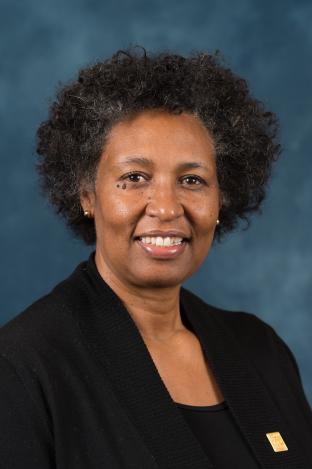- Safety & Recalls
- Regulatory Updates
- Drug Coverage
- COPD
- Cardiovascular
- Obstetrics-Gynecology & Women's Health
- Ophthalmology
- Clinical Pharmacology
- Pediatrics
- Urology
- Pharmacy
- Idiopathic Pulmonary Fibrosis
- Diabetes and Endocrinology
- Allergy, Immunology, and ENT
- Musculoskeletal/Rheumatology
- Respiratory
- Psychiatry and Behavioral Health
- Dermatology
- Oncology
FDA Committee Recommends Expanding COVID-19 Vaccines to Infants, Children
The committee recommended Moderna’s and Pfizer’s COVID-19 vaccines were recommended for children 6 months to five years, as well as Moderna’s vaccine for children ages 7 to 16.
On June 15, the FDA’s Vaccines and Related Biological Products Advisory Committee unanimously voted to expand FDA's emergency use authorization (EUA) for Moderna’s COVID-19 vaccine for children ages 6 months to 5 years, and Pfizer’s vaccine for children ages 6 months to four years old.
In addition, the VRBPAC unanimously voted to approve Moderna’s COVID-19 vaccine for children ages 7 to 16 on June 14.
On Friday and Saturday, CDC’s panel of expert advisers will consider whether to recommend the vaccines in those age groups for emergency use.
The VRBPAC’s vote was supported by safety and efficacy data presented by Moderna and Pfizer. In Moderna’s Study 204, which included more than 5,000 children ages 6 months to 5 years, the vaccine’s efficacy was comparable to the effectiveness in individual over 18 years of age, Rituparna Das, vice president of clinical development COVID-19 Vaccines for Moderna, told the committee.
But 25% of study participants had grade 1-2 fevers and there was one serious adverse event, a seizure.
In the Pfizer study of 4,500 children, vaccine efficacy against symptomatic disease was 80.4% during a time when Omicron was circulating widely in the United States, per Time.
While all VRBPAC members voted to expand the EUA to the younger age groups, many also expressed concerns.
Cody Meissner, M.D.

“It’s very important that the communication or the messaging be made as clear as possible for parents to understand the relative risk and the relative benefits,” said Cody Meissner, M.D., professor of pediatrics at Tufts University School Medicine
For example, there have been 442 deaths in children younger than 5 since the pandemic began since the start of the pandemic, Peter Marks, director of the FDA’s Center for Biologics Evaluation and Research, said during the VRBPAC meeting. “So that’s roughly 220 a year. If you look at the number of people struck by lightning annually, it’s 270. We are talking about a very rare event,” Meissner said. “We would be talking about vaccinating 20 million children in order to prevent 200 or 300 deaths.”
Hospitalization rates for those younger than 5 are also very low, Meissner noted, at 23 per 1 million children.
“It’s a matter of how the individual weights the risks versus the benefits. It should be available for high-risk patients and for parents who are so concerned, but I feel strongly parents should understand how small these numbers are. It is a very low risk from the vaccine and it is a very low risk from the infection,” Meissner added.
Oveta Fuller, Ph.D.

Oveta Fuller, Ph.D., associate professor of microbiology and immunology at University of Michigan Medical School noted concern about the one case of seizure reported in the Moderna study. “Was there an underlying condition like sickle cell disease or asthma that could be detected? My concern is that, even though there may be only one, it’s someone’s child that may have a risk factor. That would be very useful to know.”
“We don’t have other medical history on that child; they were previously well,” said Jacqueline Miller, M.D., senior vice president and therapeutic area head of infectious disease for Moderna. “As a pediatrician, several seizures often happen in children with no medical conditions, and they often happen at the peak ages of 1 to 5. It didn’t necessarily surprise us that…there was a seizure.”
When discussing the Pfizer/BioNTech vaccine, some committee members expressed concern about potential parental confusion over the difference in dose regimen. The Pfizer vaccine requires three doses in children, while the Moderna vaccine requires two doses.
Drugs to Watch: Mental Health Conditions
April 11th 2024The FDA is reviewing two novel therapies: a psychedelic-assisted therapy for PTSD with a target action date of Aug. 11, 2024, and therapy for schizophrenia that does not directly block dopamine receptors with an action date of Sept. 26, 2024.
